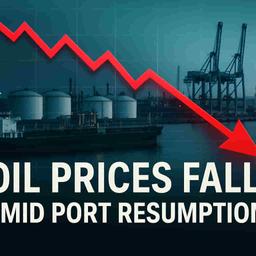S&P Global Ratings' chief economist, Paul Gruenwald, noted that US tariff impacts were less severe than anticipated, contributing to an improved global economic outlook. He highlighted India's robust growth, identifying it as the fastest-growing major emerging market with significant tailwinds for sustained expansion. Gruenwald expressed optimism about India's future trajectory, projecting a respectable 6.5% growth for multiple years, suggesting India is well-positioned for a bright economic future.
Paul Gruenwald, global chief economist at S&P Global Ratings, shared his views on the global and Indian economies. He observed that the impact of US tariffs on the global economy was less severe than initially feared, citing lower final rates and limited retaliation. While policy uncertainty in the US persists, the overall global macro story is improving, with upside risks from data centers and a capital expenditure (capex) boom.
Regarding the Indian economy, Gruenwald identified India as the fastest-growing major emerging market, with significant tailwinds supporting long and sustained growth. He projected a respectable growth trajectory of 6.5% for India for multiple years, contrasting it with China's growth model which relied heavily on capital deepening rather than productivity. India, he suggested, has the potential to achieve strong growth through productivity enhancements.
Impact:
This positive assessment of India's economic prospects by a leading global rating agency is likely to boost investor confidence. It suggests a favorable environment for foreign and domestic investment, potentially leading to increased capital inflows and stock market performance. The expected resolution of unresolved tariffs would further reduce uncertainty.
Rating: 8/10
Difficult Terms Explained:
Tariffs: Taxes imposed by a government on imported goods.
Global Economy: The aggregate economic activity of all countries worldwide.
US Economy: The economic system of the United States.
Data Centers: Facilities housing computer systems and associated components, such as telecommunications and storage systems.
Capex Boom: A significant increase in capital expenditure, meaning companies are investing heavily in physical assets.
Policy Uncertainty: Lack of clarity or predictability regarding future government regulations, tax laws, or economic policies.
Emerging Market: A country with an economy that is transitioning from developing to developed, often characterized by rapid growth.
Washington Consensus: A set of economic policy prescriptions considered the "standard" reform package promoted for crisis-wracked developing countries.
Capital Deepening: Increasing the amount of capital per worker, which can lead to higher productivity.
Productivity: The efficiency of production, measured by the amount of output produced per unit of input.

